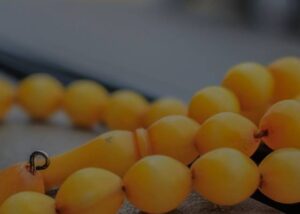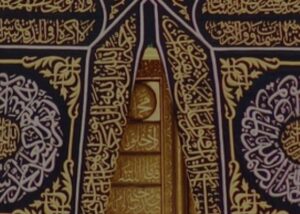Is it true that you should do Ruqyah on yourself and not ask others to do it?
Quran
Hadith
Islamic Text
It is true that it is preferred to perform Ruqyah upon yourself and not ask others for it. This approach is closer to the general Sunnah of the Holy Prophet ﷺ. It is also a higher rank and makes it more likely that one enters Jannah (paradise) without a reckoning (Hisab).
عَنْ ابْنِ عَبَّاسٍ: أَنَّ رَسُولَ اللَّهِ صَلَّى اللهُ عَلَيْهِ وَسَلَّمَ قَالَ: يَدْخُلُ الجَنَّةَ مِنْ أُمَّتِي سَبْعُونَ أَلْفًا بِغَيْرِ حِسَابٍ، هُمُ الَّذِينَ لاَ يَسْتَرْقُونَ، وَلاَ يَتَطَيَّرُونَ، وَعَلَى رَبِّهِمْ يَتَوَكَّلُونَ
(Sayidina Abdullah) Ibn Abbas (May Allah Most High be pleased with them both) narrated that the Messenger of Allah ﷺ said, ‘Seventy thousand people from my Ummah (nation) will enter Paradise without a judgement (Hisab). They are those who do not seek Ruqyah, they do not believe in evil omens, rather they put their trust in their Lord (Most High).’ (Sahih al-Bukhari, 6472).
It is clear from the authentic Hadith above that one of the requirements to being amongst those who enter Jannah (paradise) without questioning (Hisab), is not seeking Ruqyah from others. Ruqyah is to recite Quranic verses or Prophetic supplications with the intention of Shifa (cure). Therefore, it is superior for people to perform Ruqyah upon themselves and not request Ruqyah from others. As well as the Sahih Hadith above there is a similar Hadith in Sahih Muslim (218 – 372), also elsewhere in Sahih al-Bukhari (6472).
وَأَمَّا الْمُسْتَرِقِي فَإِنَّهُ يَسْأَلُ غَيْرَهُ وَيَرْجُو نَفْعَهُ وَتَمَامُ التَّوَكُّلِ يُنَافِي ذَلِكَ قَالَ وَإِنَّمَا الْمُرَادُ وَصْفُ السَّبْعِينَ بِتَمَامِ التَّوَكُّلِ فَلَا يَسْأَلُونَ غَيْرَهُمْ أَنْ يَرْقِيَهُمْ. (فتح الباري شرح صحيح البخاري)
As for the al-Mustarqi, it is someone who asks another (for Ruqyah) and seeks the benefit. However, complete reliance (Tawakul) contradicts this. He said, what is intended is to describe the seventy (thousand) with complete reliance (Tawakul). Therefore, they do not ask others to perform Ruqyah upon them. (Imam Ahmad bin Ali bin Hajr al-Asqalani, Fath al-Bari).
قَوْله: (لَا يسْتَرقونَ) أَي: لَا يطْلبُونَ الرّقية. (عمدة القاري شرح صحيح البخاري)
His saying, they do not seek Ruqyah. Meaning, they do not ask others for Ruqyah. (Imam Badr al-Deen al-Ayni, Umdatu al-Qari).
ولا يسترقون أي: يطلبون الراقية لهم من الغير. (دليل الفالحين لطرق رياض الصالحين)
They do not seek Ruqyah. Meaning, they do not ask others for Ruqyah for themselves. (Imam Ibn Ilaan, Daleel al-Faliheen).
In their respective commentaries upon Sahih al-Bukhari, Imams Ibn Hajr and al-Ayni both clarify that لَا يسْتَرقونَ refers to people not seeking Ruqyah from others. However, this does not mean it is prohibited to seek Ruqyah from another. Rather it is preferable not to.
عَنْ أُمِّ سَلَمَةَ، رَضِيَ اللَّهُ عَنْهَا: أَنَّ النَّبِيَّ صَلَّى اللهُ عَلَيْهِ وَسَلَّمَ رَأَى فِي بَيْتِهَا جَارِيَةً فِي وَجْهِهَا سَفْعَةٌ، فَقَالَ: اسْتَرْقُوا لَهَا، فَإِنَّ بِهَا النَّظْرَةَ
(Sayidah) Umm Salamah (May Allah Most High be pleased with her) narrated that the Prophet ﷺ saw a girl in her house who had an ailment on her face. He ﷺ said, ‘Seek Ruqyah for her. Indeed she has been afflicted by the evil eye.’ (Sahih al-Bukhari, 5739).
In this authentic Hadith the Holy Prophet ﷺ asked them to seek Ruqyah. Therefore, it cannot be deemed prohibited. However, this could be explained as a situation in which the person suffering was too young to recite upon herself, since it was a girl. Even then, we will not say it is prohibited to seek Ruqyah. Rather, the fact remains that it is best to perform Ruqyah upon yourself, and if someone is too young to do so, then seek it from another.
Another understanding is that seeking Ruqyah is improper when the Ruqyah itself is unacceptable. Since, Ruqyah is only permitted with that which is in the Holy Quran and the Prophetic Sunnah.
وَقد جَاءَ فِي بعض الْأَحَادِيث جَوَازهَا، وَفِي بَعْضهَا النَّهْي عَنْهَا، فَمن الْجَوَاز: (استرقوا لَهَا فَإِن بهَا النظرة) ، أَي: اطْلُبُوا لَهَا من يرقى لَهَا، وَمن النَّهْي قَوْله هَذَا: (لَا يسْتَرقونَ) . وَوجه الْجمع أَن الْمنْهِي عَنْهَا مَا كَانَ بِغَيْر اللِّسَان الْعَرَبِيّ وَبِغير أَسمَاء الله وَصِفَاته وَكَلَامه فِي كتبه الْمنزلَة. (عمدة القاري شرح صحيح البخاري)
Indeed, permissibility has been mentioned in some Hadith narrations, and in others prohibition. From those that permit it: ‘Seek Ruqyah for her. Indeed she has been afflicted by the evil eye.’ Meaning, seek someone who can perform Ruqyah for her. As for prohibition, his saying the following: ‘They do not seek Ruqyah.’ The way to reconcile is to consider the prohibition to relate to non-Arabic, and that which is other than the Names, Attributes and Speech of Allah (Most High) from the revealed books. (Imam Badr al-Deen al-Ayni, Umdatu al-Qari Sharh Sahih al-Bukhari).
(” هُمُ الَّذِينَ لَا يَسْتَرْقُونَ “) أَيْ: لَا يَطْلُبُونَ الرُّقْيَةَ مُطْلَقًا أَوْ بِغَيْرِ الْكَلِمَاتِ الْقُرْآنِيَّةِ وَالْأَسْمَاءِ الصَّمَدَانِيَّةِ. (مرقاة المفاتيح شرح مشكاة المصابيح)
They are those who do not seek Ruqyah. Meaning, they never ask others to perform Ruqyah. Or it means, with other than the Quranic words and eternal Names. (Imam Noorud-Deen Ali al-Qari, Mirqaat al-Mafateeh).
يريد الاسترقاء الذى كانوا يسترقونه فى الجاهلية عند كهانهم وهو استرقاء لما ليس فى كتاب الله ولا بأسمائه وصفاته، وإنما هو ضرب من السحر، فأما الاسترقاء بكتاب الله والتعوذ بأسمائه وكلماته فقد فعله الرسول وأمر به ولا يخرج ذلك من التوكل على الله. (شرح صحيح البخارى لابن بطال)
Meaning, seeking the Ruqyah that they used to seek in Jahiliyyah (the age of ignorance) with their mystics. It refers to seeking Ruqyah with that which is not in the Book of Allah (Most High), nor His Names or Attributes. Rather it (that which is not from Quran and Sunnah) is a form of sorcery (Sihr). As for seeking Ruqyah with the Book of Allah (Most High) and the seeking of protection with His Names and Words, indeed the Messenger of Allah ﷺ done it, and commanded it. That does not exclude one from having reliance upon Allah (Most High). (Imam Abu al-Hasan Ali bin Khalaf Ibn al-Battaal, Sharh Sahih al-Bukhari).
As we see in the Nusoos above, Ruqyah should only be performed with Quran and Sunnah. It must also be clear. It should not be whispered or mumbled such that one cannot understand what is being recited. The Adab with the Quran and Sunnah dictates that it should be recited clearly.
الْمَدْحُ فِي تَرْكِ الرُّقَى الْمُرَادُ بِهَا الرُّقَى الَّتِي هِيَ مِنْ كَلَامِ الْكُفَّارِ وَالرُّقَى المجهولة والتي بغير العربية ومالا يُعْرَفُ مَعْنَاهَا فَهَذِهِ مَذْمُومَةٌ لِاحْتِمَالِ أَنَّ مَعْنَاهَا كُفْرٌ أَوْ قَرِيبٌ مِنْهُ أَوْ مَكْرُوهٌ وَأَمَّا الرقى بآيات القرآن وبالأذكار المعروفة فلا نهى فِيهِ بَلْ هُوَ سُنَّةٌ. (المنهاج شرح صحيح مسلم بن الحجاج)
Praise for refraining from Ruqyah refers to Ruqyah that is from the speech of Kufaar (disbelievers). Also Ruqyah that is unrecognisable, or not in the Arabic language, or of unknown meaning, all of this is reprehensible. It is possible that it may contain Kufr (disbelief), or something close to it, or something disliked. As for Ruqyah with the verses of the Quran, or the known litanies, there is no prohibition regarding them. Rather they are Sunnah. (Imam Abu Zakariyah al-Nawawi, Sharh Sahih Muslim).
(ولا يسترقون) أي: برقى الجاهلية وما لا يعقل معناه دون القرآن والأذكار النبوية. (التوشيح شرح الجامع الصحيح)
They do not seek Ruqyah. Meaning, with the Ruqyah of Jahiliyyah (the age of ignorance). Neither anything of which the meaning cannot be understood. (It should not be) other than the Quran and Prophetic litanies. (Imam Jalal al-Deen Abd al-Rahman bin Abi Bakr al-Sayuti, al-Towsheeh Sharh al-Jami al-Sagheer).
From the clarification provided by the scholars in the Nusoos (texts) above, we can highlight two issues. Firstly, it is not permitted to carryout Ruqyah with anything but clear Quran and Sunnah recital. Secondly, it is preferable to perform Ruqyah upon oneself. As for people who are too young to do so, then it is recommended for someone else to recite over them.
The preference to perform Ruqyah on oneself does not mean that if one is asked to do it then he should refuse. Rather one should offer one’s assistance when there is a need. Regarding the following Hadith, some scholars said it refers to assisting without being asked.
جَابِرَ بْنَ عَبْدِ اللهِ يَقُولُ: لَدَغَتْ رَجُلًا مِنَّا عَقْرَبٌ، وَنَحْنُ جُلُوسٌ مَعَ رَسُولِ اللهِ صَلَّى اللهُ عَلَيْهِ وَسَلَّمَ، فَقَالَ رَجُلٌ: يَا رَسُولَ اللهِ أَرْقِي؟ قَالَ: مَنِ اسْتَطَاعَ مِنْكُمْ أَنْ يَنْفَعَ أَخَاهُ فَلْيَفْعَلْ
(Sayidina) Jabir bin Abdillah (May Allah Most High be pleased with them both) said, a scorpion stung a man amongst us, whilst we were sitting with The Messenger of Allah ﷺ. A man said, O Messenger of Allah ﷺ should I perform Ruqyah. He ﷺ said, ‘Whoever amongst you is able to assist his brother, should do so.’ (Sahih Muslim, 2199 – 61).
And Allah Most High Knows Best
-Answered by Shaykh Noorud-deen Rashid (31.03.2023)
See also:
Protection from Jinn and Sihr
Black magic causing mental illness
See also video:






